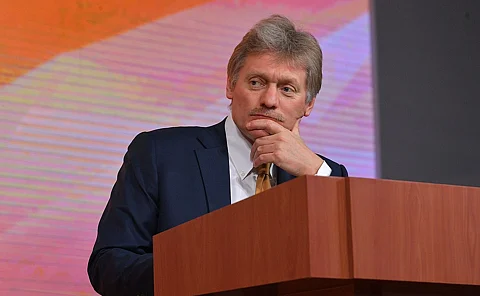

The United States and Russia were expected to issue a joint statement early Tuesday following discussions in Saudi Arabia aimed at securing a Black Sea maritime ceasefire deal, according to sources familiar with the matter. The statement was anticipated at 4 a.m. EDT (11 a.m. Moscow time), but no announcement was made by U.S. officials after the deadline passed.
While the details of the proposed agreement remain unclear, sources indicated that reports from the U.S. technical team in Riyadh had conveyed optimism to the Trump administration.
More than an hour after the expected announcement, Kremlin spokesman Dmitry Peskov told reporters that Russian officials were still reviewing information relayed by their negotiators in Saudi Arabia.
“These are technical negotiations that delve deeply into details. Their content will not be published—this should not be expected,” Peskov said. He added that Moscow was still analyzing the reports from its delegation and that only afterward could “some understandings” be discussed.
Russian Foreign Minister Sergei Lavrov later stated that Moscow would consider a revised version of a previous Black Sea grain deal with Ukraine—originally brokered by the U.N. and Turkey—but only with “clear guarantees.” Lavrov suggested such assurances would require direct U.S. intervention, stating they could “only be the result of an order from Washington” to Ukrainian President Volodymyr Zelenskyy.
Talks Deemed "Useful" Despite Delays
Russian negotiator Grigory Karasin, speaking to state-run TASS news agency, described the Riyadh discussions as “intense” and “very useful,” though challenging. The talks, which spanned 12 hours, covered numerous issues, and Karasin indicated Moscow would continue engaging with the U.S. while seeking involvement from the U.N. and other nations.
Meanwhile, AFP reported that Ukrainian and U.S. officials held separate talks in Riyadh on Tuesday, though no details were immediately disclosed.
The original Black Sea Grain Initiative, which Russia abandoned in 2023, had facilitated Ukrainian grain exports amid the war. Moscow claimed at the time that Western sanctions hindered its own agricultural exports, violating the agreement’s terms. Lavrov’s remarks signaled that a renewed, limited version of the deal is under discussion.
Senior U.S. officials, including the State Department’s Michael Anton and the NSC’s Andrew Peek, have participated in the Riyadh talks.
The developments follow conflicting accounts of an earlier ceasefire agreement. National security adviser Mike Waltz claimed a halt to attacks on “aerial infrastructure” took effect after a call between former President Donald Trump and Russian leader Vladimir Putin. However, Moscow and Kyiv offered differing versions of the deal, with Ukraine accusing Russia of violating it within hours.